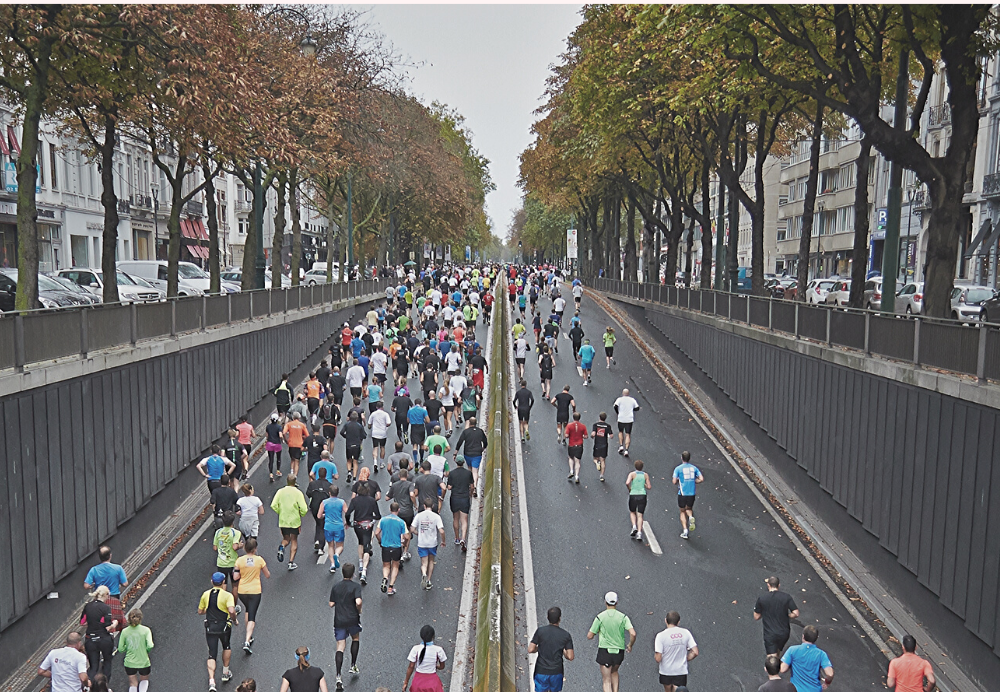You may have noticed that there are some people who run at the gym or park daily and yet, their physique never changes. They may be sweating it out and panting away, but for all their effort, they still look overweight and never really get the lean body that they’re aiming for. You may even see yourself as that person. Running daily and yet, see minimal results. So, why does this happen? The answer comes down to one word – your diet and nutrition. So, let’s get into it, nutrition for runners – losing weight or getting fit.
If you’re running to lose weight, your calorie consumption MUST be at a deficit. If you’re eating more calories than you expend, you’ll not see any weight loss. Your stamina will go up, but your weight won’t come down.
Nutrition for a runner is basically the same as with any other sport. You need your macronutrients in the right proportions. You should get your carbs, protein and fats from healthy sources.
If you’re a long-distance runner, you’ll probably need more carbohydrates. This is often an issue when it comes to weight loss. Steady-state cardio for an hour or so often creates cravings for carbohydrates in the body.
As a result, people who run a lot tend to devour carbs. Usually, they eat more carbs than they need to, and this results in weight gain. This is one reason why many fitness trainers recommend high-intensity training over steady-state cardio.
As a runner, you’ll need to watch your carb intake closely. Even more important than that is to stay well-hydrated throughout the day. This is especially true if you are training first thing in the morning on an empty stomach. You can read more about running and weight loss here.
Always drink water about 30 minutes prior to running. Your body would have lost water in the night. So, replenish your fluids before running in the morning.
A common mistake that many people make is to assume that they can eat anything they want without worry because they’re running. This is not true. In fact, a 45-minute run can easily be cancelled out by eating 2 doughnuts or 2 slices of pizza.
Since running is more torturous than eating, it’s easy to believe that your body has burned a ton of calories. In reality, you may only burn about 300 to 400 calories in a 30-minute run. 2 slices of pizza that can be consumed in 10 minutes can contain about 500 calories.
That’s how easily you can undo your workout if you’re not mindful about what you’re eating. Get all your calories from healthy and nutritious foods and treat yourself occasionally, but don’t overdo the treats. A cheat meal is better than a cheat day.
The best fluid to consume is water. Avoid energy drinks that claim to replenish lost electrolytes and so on. All your body really needs is water. If you’re running many miles daily, then you may consume these drinks. But if you’re only running for 30 minutes to an hour, water will do.
Drinking your calories is one of the fastest ways to gain weight or impede your weight loss progress. To conclude, just know that the average person only needs to eat clean to help with his or her running progress.
Study nutrition and the foods you’re eating. Tailor your diet to fit with your needs. If you engage in more resistance training, increase your protein. On days when you run, consume slightly more carbs.
On days when you don’t run, you may wish to skip the carbs. Get your fats from healthy sources like fish oil, extra virgin olive oil, coconut oil, etc.
If you follow these pointers, as mentioned in this, nutrition for runners – losing weight or getting fit, you will be just fine and lose weight gradually and reach your fitness and weight loss goals.

Disclaimer: This blog post contains affiliate links to products and services I am passionate about. Purchasing via these links won’t cost you any extra but it will help me enormously.
This website is written by a regular human. I am not a Health Professional. Please get professional medical advice for your specific health needs.




